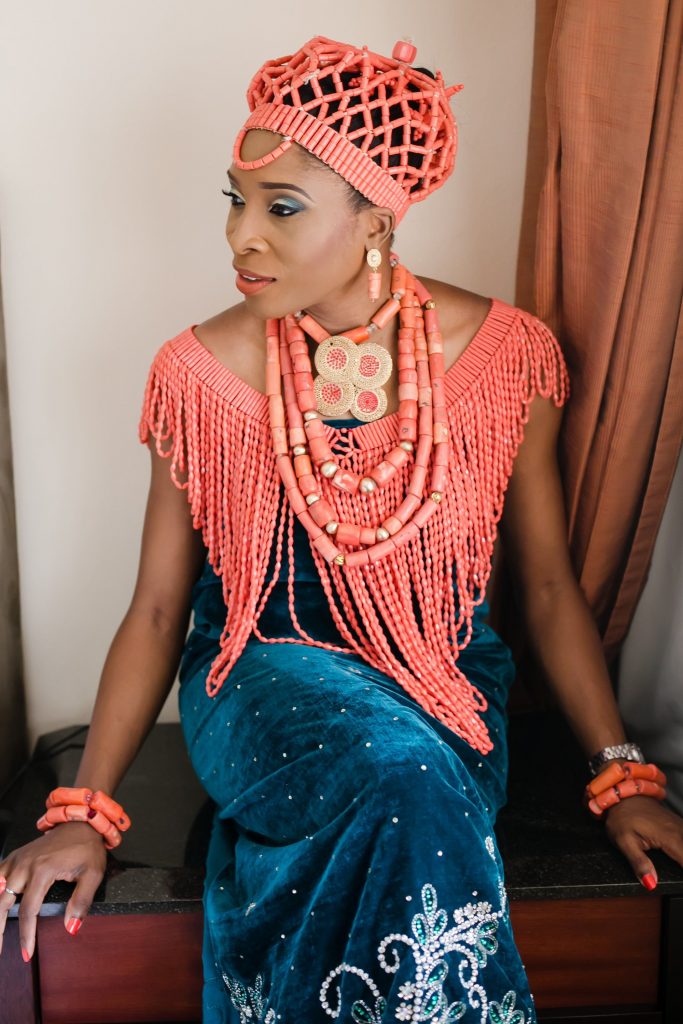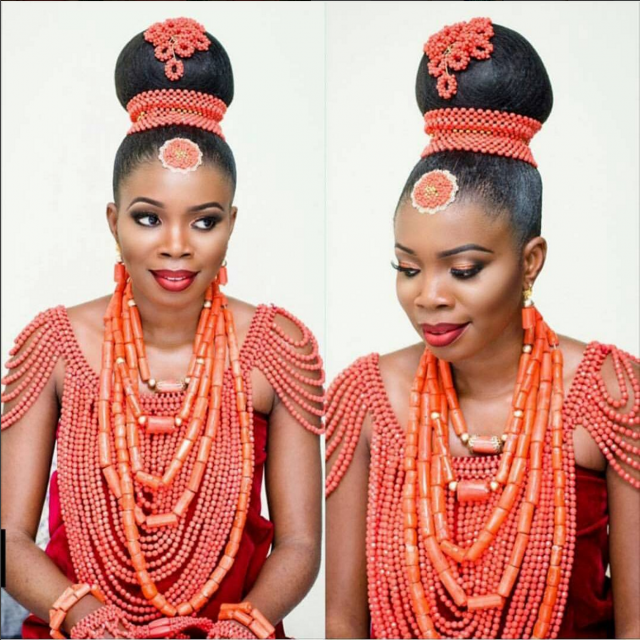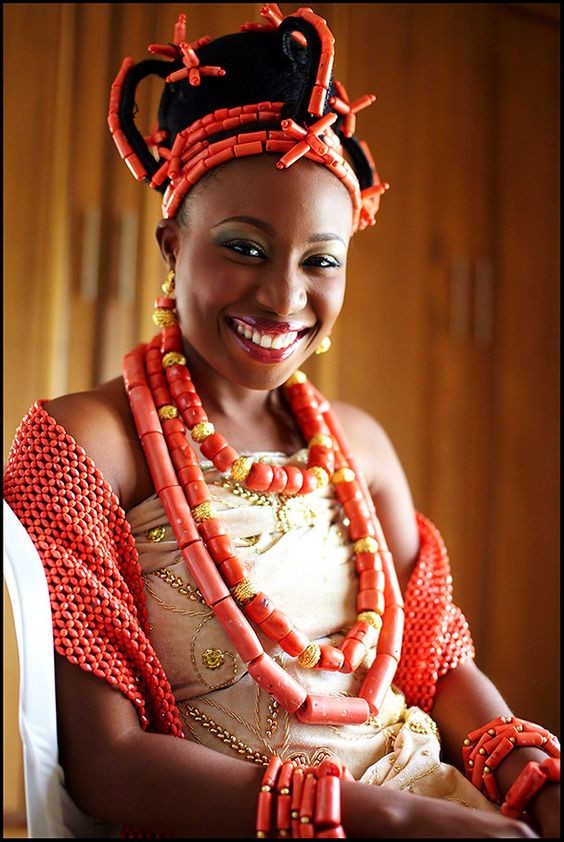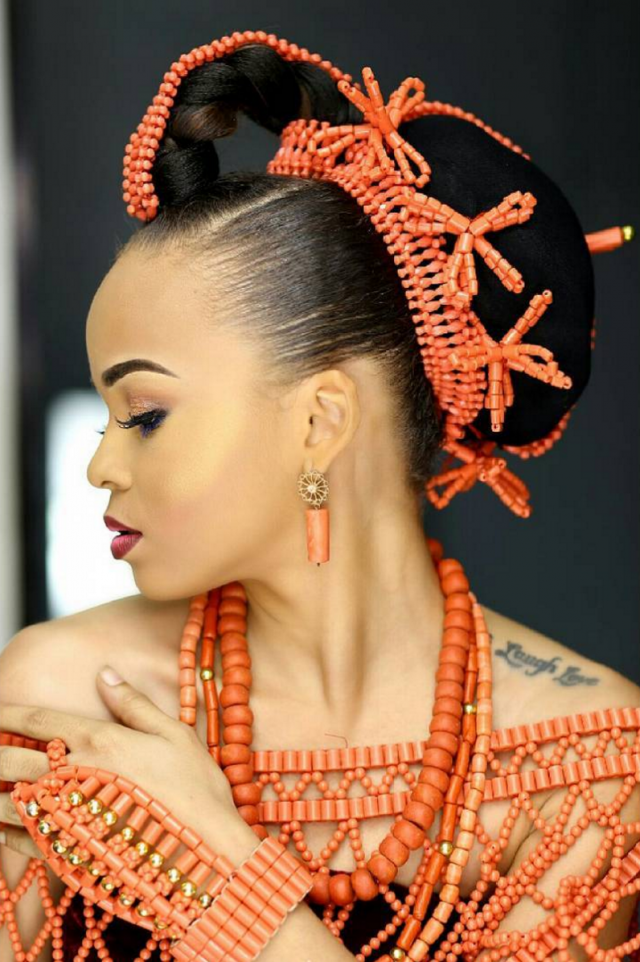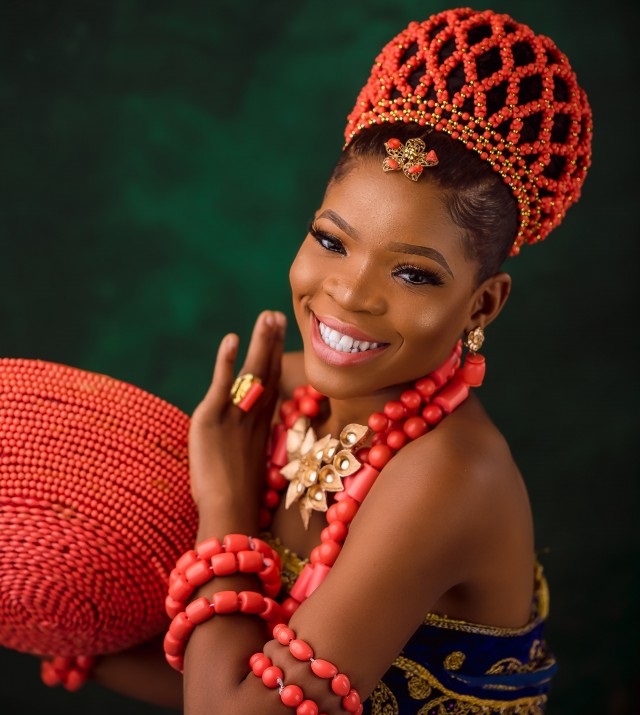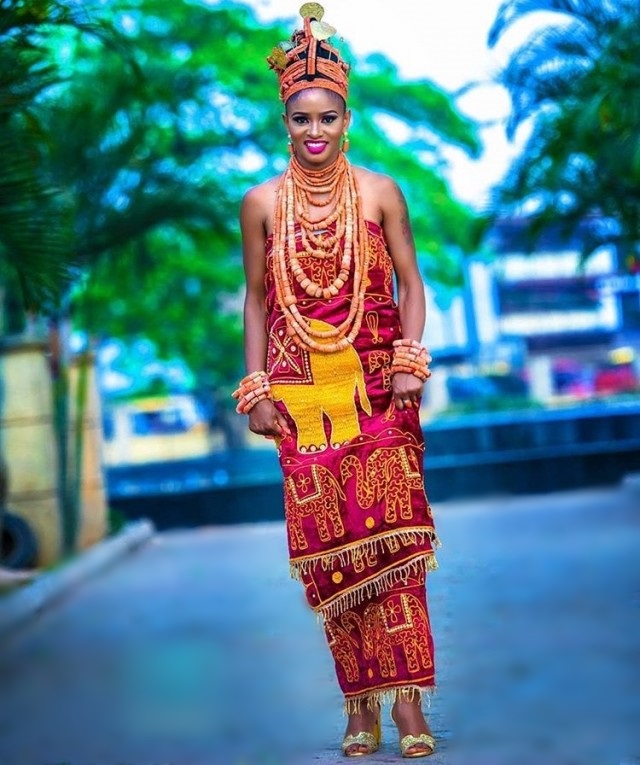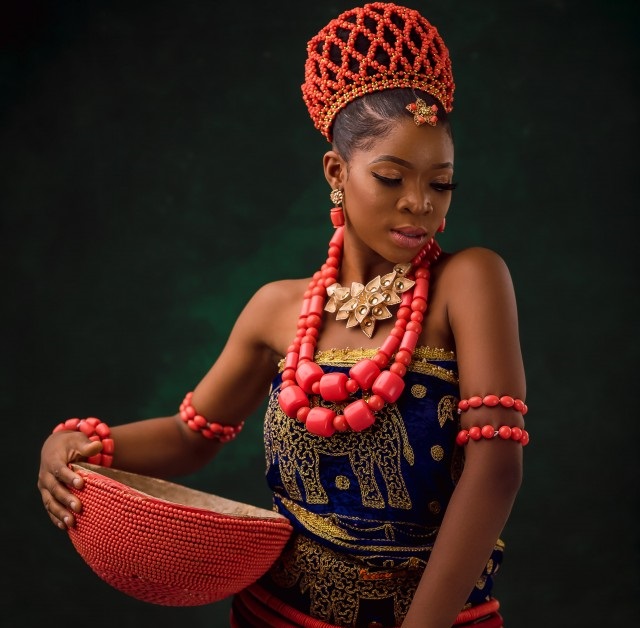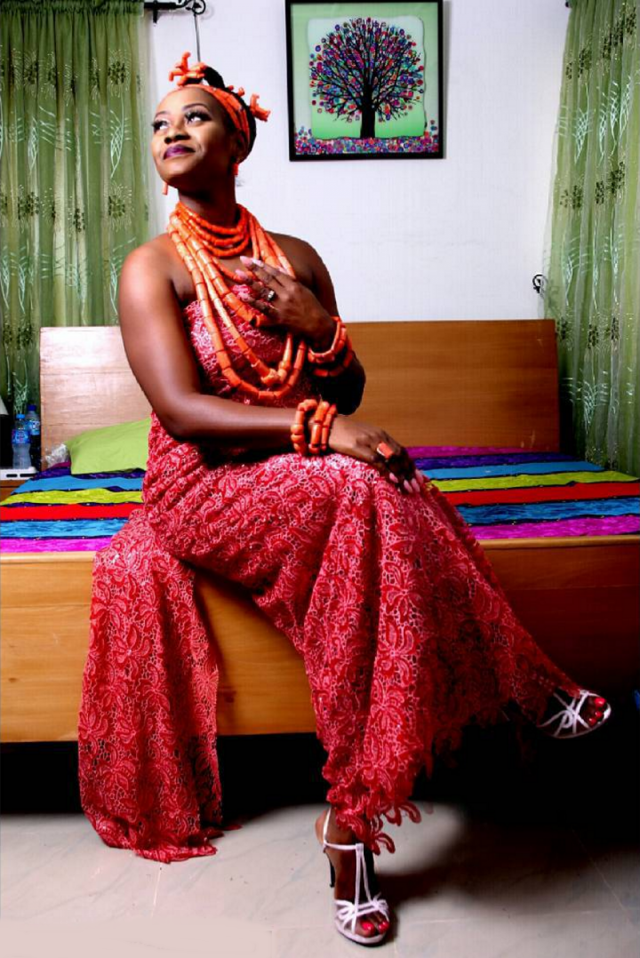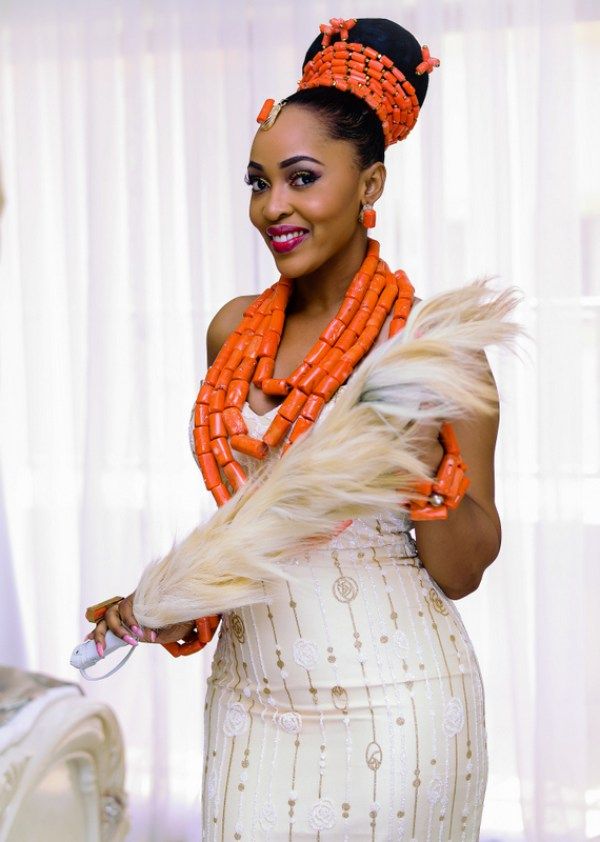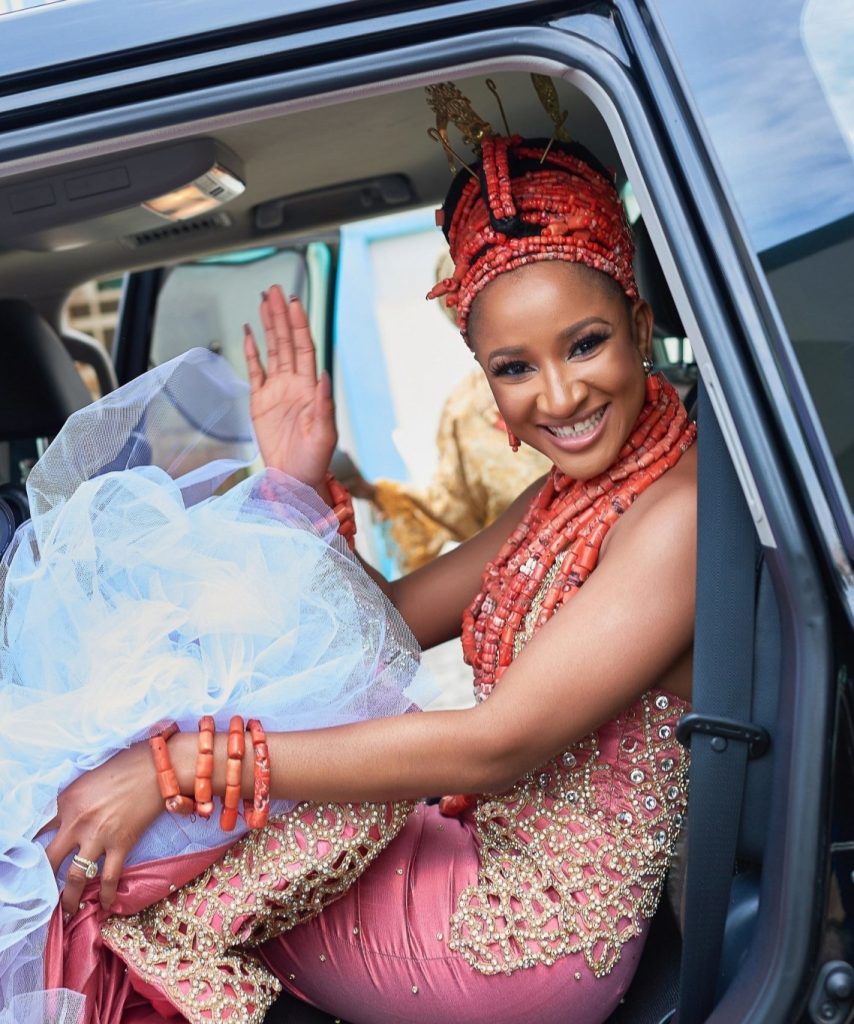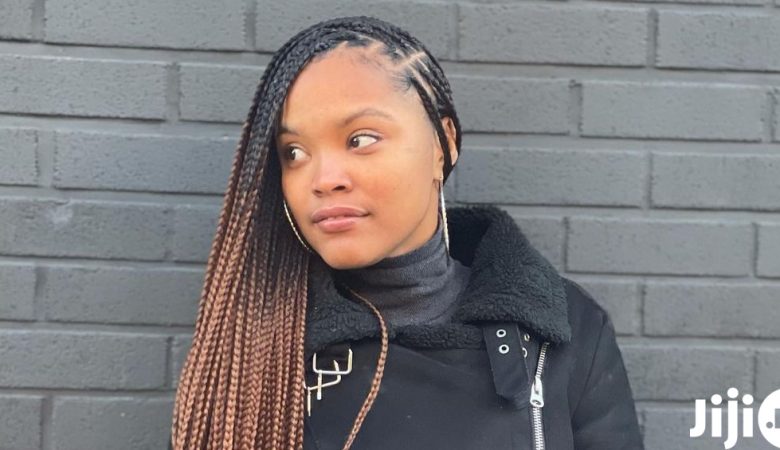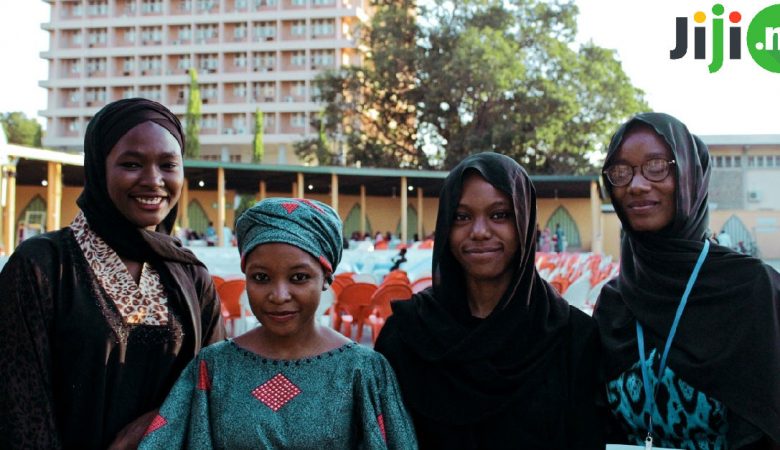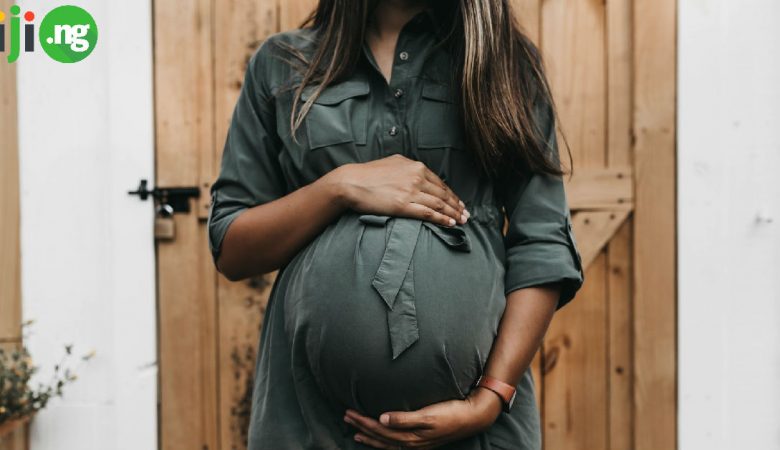Esan people are the tribe residing in Nigeria from the ancient times and known for its militaristic nature and extraordinary beliefs. Nowadays, they live mostly in the Edo state. Esan is one of the Nigerian major ethnic groups. They are well-educated, creative, and have a positive outlook. All these features are displayed in the tribe’s traditions and way of life.
They love holidays and festivities, although the everyday life of Esan is determined by the strict rules. In spite of all the globalization processes taking part in modern society, Esan managed to preserve the highly homogenous character of their population and customs, Esan marriage culture in particular.
Marriage is on the list the most significant events in a person’s life, and Esan traditional wedding reflects this completely. Marriage rituals provide insight into the ancient beliefs, leaving enough room for traditional and modern celebrations, but the traditional one comes first.
Esan marriage institute
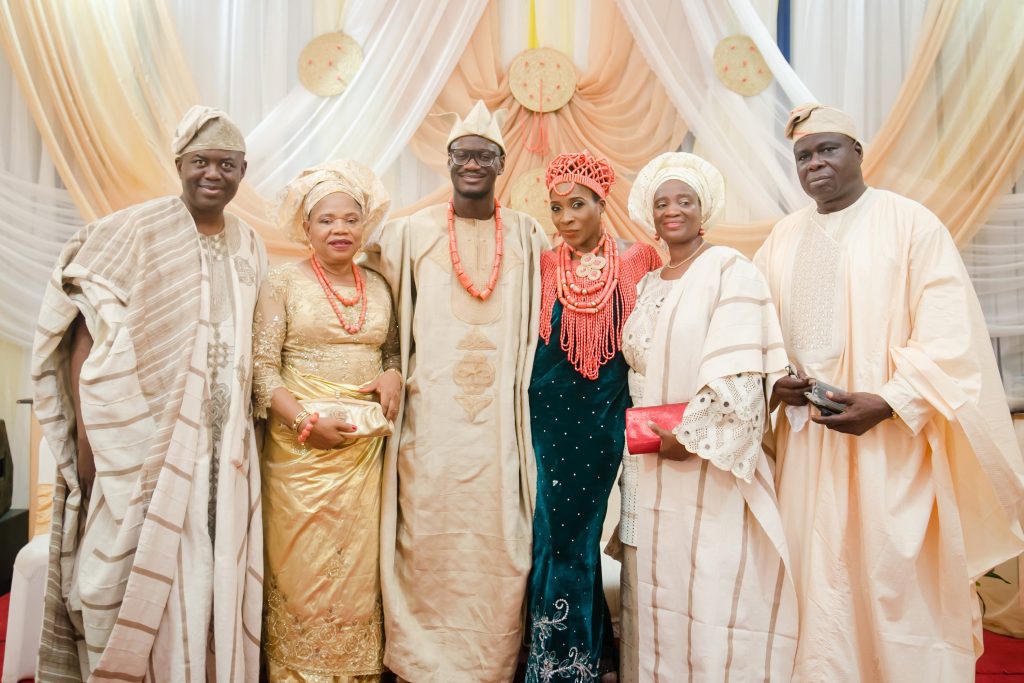
There are two forms of marriage in Esan culture – monogamy and polygamy, letting a man have one or two and more wives correspondingly. Traditionally, the girls were considered ready for marriage between 15 and 18 years old. Today they prefer to wait a little bit older.
For Esan, marriage is the arrangement between both families rather than just two individuals. A bride and a groom should work on their differences and issues, otherwise, a conflict affects both families. A man is the head of the family, so he pays the dowry.
The betrothal system was common among the Esan. The marriage was often arranged as an agreement between two families, so the bride and groom sometimes didn’t see each other before a ceremony. Sometimes betrothal took place when children were born, sometimes when it came to the age of marriage.
Wedding ceremony
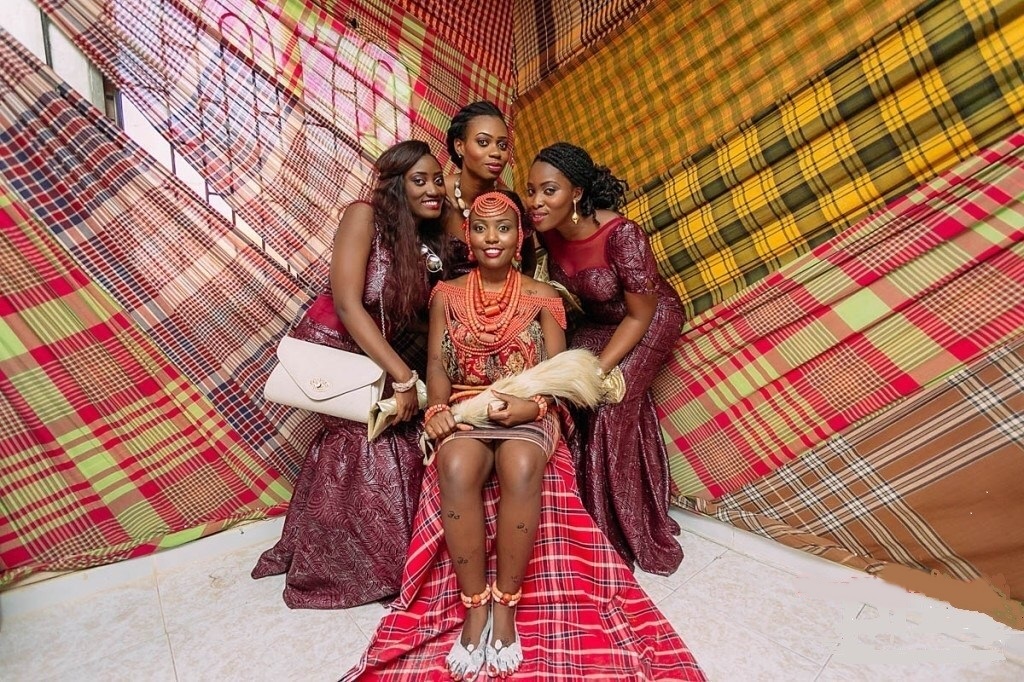
The ceremony took place after the agreement between families, which followed the research regarding family history – crimes, scandals, diseases, wealth and all other social aspects that could define and influence the well-being of a future family. Then, the preparation for the celebrations started.
Groom’s family pays the dowry to the bride’s mother and other members, who participate in a settlement. After this, a date for a wedding can be set. The wedding takes place at the woman’s place, and the head of her family presides the ceremony.
Interestingly, rituals may vary from family to family. One, thing, however, is common for all ceremonies: prayers at the family shrine. Wine and kola nuts are traditional gifts, which are broken at the family shrine and mark the new family connection.
Westernization and other religions have weakened the traditional celebration a bit. The ceremony and rituals nowadays differ a lot from the way it happened a hundred years before or so. Nevertheless, marriage is still built on the principles of trust and faith.
Esan traditional wedding attire
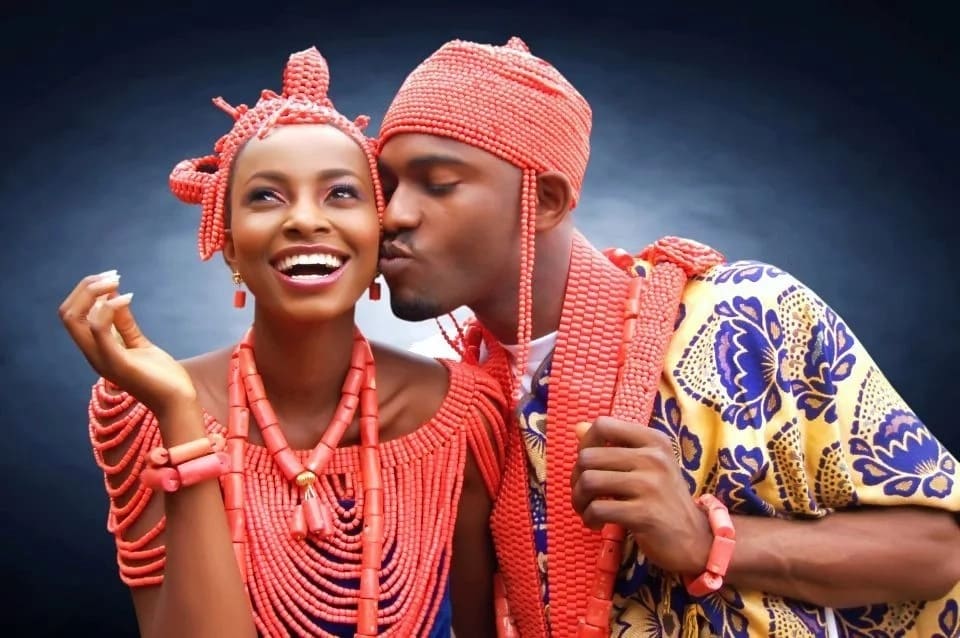
Esan traditional attire is one of those parts that have remained unchanged – with bride’s sophisticated hairstyles, abundance of accessories, and crowns. The accessories are the main part of the bright and totally impressive outfit. They include:
- Eto-Okuku – high bun created by using black hair gel;
- Okuku – coral beads arranged in a form of a crown;
- Ivie-uru – beaded necklaces;
- Ivie-ebo – hand beads;
- Emi-ehorivie – beaded earrings;
- Ewu-ivie – beaded top or cape.
It looks like the Esan devote less attention to wedding gown styles and grooms’ outfits. These pieces of marriage garment are rather traditional for all the country. Brides are free to choose white gowns, vivid colors, or go with the mix of traditional and modern, as well as grooms.
